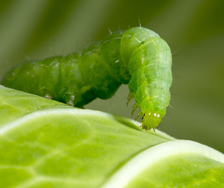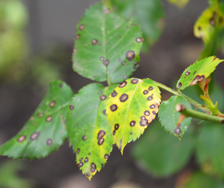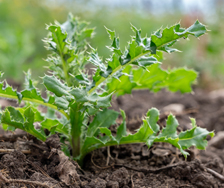Yates Account
Join now
Create a Yates account today!
Sign up to join the Yates Garden Club for monthly e-mails packed with seasonal inspiration, tips for success & exclusive promotions.
Plus if you’re a Garden Club member you can take part in the Yates Growing Community - a blog to share successes, get advice & win prizes in fun challenges along the way!

Forgot password
Enter the email address associated with your account, and we'll email you a new password.

Tomato TLC
With tomatoes in full swing in December, here's how to keep them healthy and productive for many months:
-
Keep feeding your tomatoes each week with a fertiliser that’s been designed for fruiting vegies like tomatoes. Yates Thrive Tomato Liquid Plant Food is a complete plant food that contains nitrogen for green leaf growth, phosphorus for a strong root system and is enriched with potassium to encourage lots of flowers and tomatoes. Mix 2 capfuls in a 9L watering can and apply over both the foliage and the soil.
-
Water tomatoes regularly to keep the soil moist (especially with potted tomatoes) as water stress can reduce the harvest; it can also increase the risk of blossom end rot. Calcium deficiency in the soil can also play a part in blossom end rot. Applying some Yates Hydrangea Pinking Liquid Lime Dolomite, which is a rich source of calcium, can help raise the soil calcium level and reduce the incidence of blossom end rot.
-
Protect tomatoes from insect pests like caterpillars (tomato fruit worm) and aphids with Yates Mavrik Insect Mite Spray Concentrate. Spray tomato plants thoroughly, including the undersides of leaves, every 7 – 14 days.
-
Pick fruit regularly to keep your delicious harvest going for longer. If you slack off, your tomatoes will give up!

Colour & Crunch
Capsicums are always handy to have in your kitchen. Whether you eat them crunchy and raw in salads, marinate, stuff or roast them, or create flavoursome dips, stir fries and frittatas, they’re a versatile, healthy and vitamin rich vegie.
Capsicums are easy to grow at home, in either a vegie patch or in pots, and just a few plants will provide you with fresh capsicums for many months.
Yates Capsicum Giant Bell is a vigorous capsicum variety that produces vibrant green fruit, which transform into a rich sweet red at maturity. They can be eaten at any stage, green or red.
Here are the easy steps to grow your own capsicums:
-
During December (even in the colder parts of the country), sow capsicum seeds 6mm deep, direct where they are to grow. Seedlings can also be raised in trays of Yates Black Magic Seed Raising Mix and transplanted into their final position when they’re 5-7cm tall.
-
To promote improved soil and healthy plant growth, enrich the soil before sowing with some Yates Thrive Natural Blood & Bone with Seaweed
-
For pot-grown capsicums, choose a pot at least 30cm wide with good drainage holes and fill with a quality potting mix like Yates Premium Potting Mix.
-
Keep the soil moist and seedlings should pop up in 10-14 days.
-
Once the seedlings are established, regularly applying a potassium boosted plant food like Yates Thrive Flower & Fruit Soluble Fertiliser will promote healthy leaf growth as well as lots of flowers that will turn into delicious capsicums.
-
Capsicums can start to be picked around 10–12 weeks after sowing. Pick fruit regularly to prolong the harvest.

Versatile Chives
There’s nothing like fresh home-grown herbs to add flavour, colour and pizazz to your cooking. Chives are a great perennial herb to have on hand throughout the year. During the warmer months they add a mild onion flavour to salads, bruschetta and dips and during the cooler months they’re delicious in dishes like sun dried tomato & chive potato mash, quiche, pasta and pumpkin & chive soup. They also add a dash of bright green and their pretty purple bee-attracting flowers are also edible.
Yates Chives can be sown from spring through to autumn in cool and temperate areas and will grow into a 20 – 30 cm tall clump of fine, dark green leaves. The seed can be sown 5 mm direct where the plants are to grow, in a sunny or partly shaded garden bed or pot. Seed takes up to 21 days to germinate, so be patient and keep the soil or potting mix moist.
To promote lots of fragrant and tasty chive foliage, feed regularly with Yates Thrive Vegie Herb Liquid Plant Food, which is rich in nitrogen to promote leafy green growth. You can start harvesting individual leaves after around 8 weeks. Continuous picking will help promote fresh new growth.
Design tip: chives can be grown as a decorative (and edible) garden border.
All Year Round Cauliflowers

Cast your mind forward to cooler weather in late autumn when roasts and soups will start to be on the menu. Cauliflower is a brilliant vegie to use in so many warming recipes and if you start sowing seed now, you’ll be eating home grown cauliflower in a few months’ time.
Yates All Year Round Hybrid Cauliflower is a popular, early maturing and easy to grow variety. It produces large, firm heads in 14 – 18 weeks.
-
It’s best to start cauliflower off in trays of Yates Black Magic Seed Raising Mix and transplant the seedlings out into a sunny vegie patch when they’re around 7 cm high. Leave 50 – 75 cm between each plant, so they have enough room to grow.
-
To reduce the incidence of disease, cauliflowers should not be grown where other brassica vegies (like cabbages, broccoli and kale) have been grown in the last 2 years.
-
To help grow big healthy cauliflowers, feed them each week with Yates Thrive Vegie Herb Liquid Plant Food. And as the white heads (called a ‘curd’) develop, fold the leaves over the top to prevent yellowing.
-
Caterpillar control: brassica vegies like cauliflower are adored by cabbage white butterfly caterpillars, which devour leaves. These caterpillars can be controlled by spraying every 7 days with Yates Success Ultra Insect Control Concentrate.
Pampering your potatoes

Potatoes are a delicious and productive vegie to grow at home and can even be grown in pots. Seed potatoes planted during spring will be growing strongly during summer.
Here’s what you can do during summer to promote the best possible spud harvest:
-
As green shoots emerge, cover with a 15 cm layer of mulch, such as lucerne hay or pea straw, and a sprinkling of Yates Dynamic Lifter Organic Plant Food. The mulch layer encourages the shoots to grow taller, which provides more opportunities for the potatoes to develop along the stem. It also protects the potato tubers from sunlight. Yates Dynamic Lifter provides the growing potato plants with slow release organic nutrients to promote healthy growth and encourage lots of potatoes. Water the plants if the soil and mulch feels dry.
-
Each time new shoots emerge through the mulch, apply another 15 cm layer of mulch and more Yates Dynamic Lifter.
-
It takes around 4 months for potatoes to fully mature, however impatient gardeners can harvest some tender baby potatoes a little earlier. Gently dig around the root zone of the potato plant (a technique called bandicooting) and feel for the little spuds!
-
Potato insect watch: keep an eye out for sap sucking aphids and mites, which can damage and distort potato foliage. Regular sprays Yates Natures Way Organic Citrus, Vegie Ornamental Spray Ready to Use , on both the upper and lower leaf surfaces, will help keep aphids and mites under control. It’s certified for use in organic gardening so is ideal for gardeners wanting to use organic methods of insect pest control.
Dill

Dill (Anethum graveolens) is a traditional aromatic and versatile annual herb that can add delicious flavour to a wide range of dishes including seafood, quiches and tarts, salads and even breads and savoury muffins.
Yates Dill seed can be sown throughout New Zealand during December and is happy to grow both in the ground and in pots. Dill doesn’t like to be transplanted, so sow seed direct where it is to grow.
Growing Tips:
-
The easiest way to sow dill is to lightly scatter seed over the soil surface or pot and then cover with a thin layer of Yates Black Magic Seed Raising Mix, so the seed is only 1 mm deep, and gently firm down.
-
Keep the soil or potting mix moist while the seed germinates (in around 10 – 12 days) and the seedlings establish.
-
Thin any excess seedlings so plants are around 20 cm apart.
-
Grow dill in a sunny, well drained spot that is protected from the wind. The ferny foliage can be picked from around 8 weeks.
-
Feed dill plants regularly with a complete plant food like Yates Thrive All Purpose Soluble Plant Food, to promote lots of healthy leafy growth.
If left to flower, dill’s pretty yellow flowers will attract bees and other beneficial insects that will help to control insect pests like aphids.
















Share
Share this article on social media